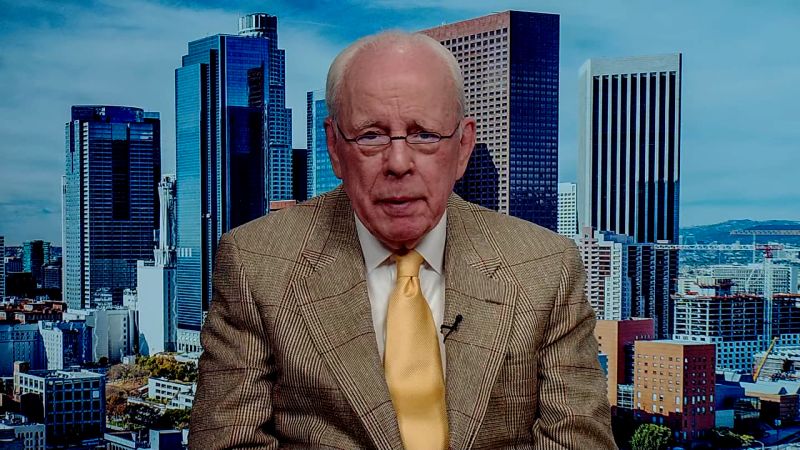In a recent interview, John Dean, former White House counsel to President Richard Nixon, expressed his belief that the case against former President Donald Trump in New York is “very powerful.” Dean’s assessment comes as Michael Cohen, Trump’s former fixer and lawyer, is set to testify in Trump’s criminal hush money trial in New York. Cohen has been cooperating with investigators and is expected to provide testimony that could potentially incriminate Trump in the case. Dean, drawing on his experience in the Nixon administration, suggests that Trump could be facing serious legal consequences if the evidence against him is strong enough.
Dean’s perspective is informed by his own involvement in the Watergate scandal, which ultimately led to Nixon’s resignation. Drawing parallels between that situation and the current allegations against Trump, Dean emphasizes the significance of Cohen’s testimony in potentially implicating the former president. Dean notes that Cohen’s cooperation with authorities is a key factor in building a strong case against Trump, as he may have firsthand knowledge of Trump’s involvement in the hush money scheme. Dean’s insights offer a historical perspective on the potential fallout of the case and underline the importance of Cohen’s testimony in establishing the veracity of the allegations.
The case in New York revolves around allegations that Trump directed hush money payments to two women during the 2016 presidential campaign in order to silence their claims of extramarital affairs with him. The payments were made through Cohen, who has since acknowledged his role in orchestrating the transactions. Investigators are now seeking to determine whether Trump was directly involved in the scheme and to what extent he may have violated campaign finance laws. Dean’s assessment of the case as “very powerful” suggests that the evidence against Trump is compelling and could have serious implications for his legal standing.
Dean’s commentary on the case reflects his expertise in legal matters and his experience navigating high-profile scandals. As a former White House counsel who played a central role in the Watergate investigation, Dean has a unique perspective on the potential ramifications of political wrongdoing. His insights into the case against Trump provide valuable context for understanding the gravity of the allegations and the legal challenges that the former president may face. By highlighting the significance of Cohen’s testimony and the strength of the evidence against Trump, Dean underscores the seriousness of the situation and the potential consequences for Trump’s legal future.
The upcoming testimony by Michael Cohen in Trump’s hush money trial is expected to shed light on the extent of Trump’s involvement in the alleged scheme. Cohen’s cooperation with investigators and his willingness to testify against Trump could provide crucial evidence in establishing Trump’s culpability. Dean’s assessment of the case as “very powerful” underscores the potential impact of Cohen’s testimony on the proceedings and the legal jeopardy facing Trump. As the trial unfolds, the revelations from Cohen’s testimony are likely to shape the course of the case and determine the outcome for Trump.
In conclusion, John Dean’s analysis of the case against Trump in New York offers a sobering perspective on the potential legal challenges facing the former president. Drawing on his experience in the Nixon administration and his insights into high-profile scandals, Dean emphasizes the significance of Michael Cohen’s testimony in establishing Trump’s involvement in the hush money scheme. The strength of the evidence against Trump, as suggested by Dean, raises the possibility of serious legal consequences for the former president. As the trial progresses and Cohen’s testimony is heard, the true extent of Trump’s culpability may be revealed, marking a crucial turning point in the case against him.













